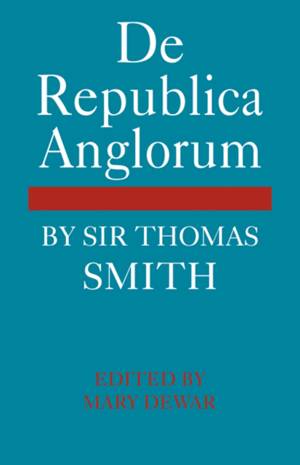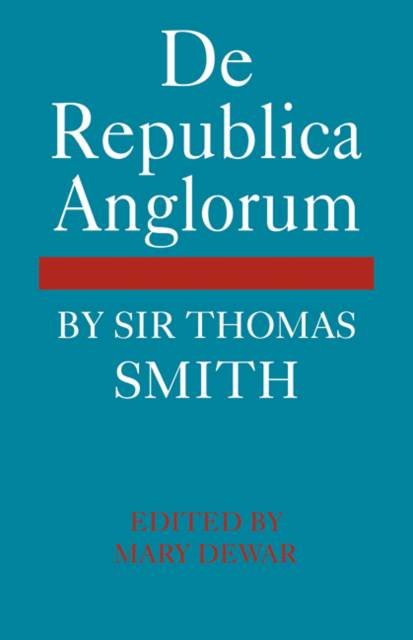
- Afhalen na 1 uur in een winkel met voorraad
- Gratis thuislevering in België vanaf € 30
- Ruim aanbod met 7 miljoen producten
- Afhalen na 1 uur in een winkel met voorraad
- Gratis thuislevering in België vanaf € 30
- Ruim aanbod met 7 miljoen producten
Zoeken
Omschrijving
De Republica Anglorum was written by Sir Thomas Smith in 1562-5 when he was Queen Elizabeth's ambassador to France. His avowed intention was to describe English social institutions, judicial system and governmental procedures for the benefit of foreigners, explaining in what way the English system 'differs from the others'. A renowned scholar, with considerable experience in government, he succeeded in producing an account which has always been considered a major source of information and insight into Elizabethan England. This edition endeavours to establish the original text as written in the 1560s. The discovery of several manuscript texts written before the 1583 printed edition and their collation with the 1583 edition allow us to see the nature and extent of the alterations made. For the first time one can read De Republica Anglorum without the heavy amending hand of the 1583 editor and approach the text as Smith wrote it in the 1560s. The new text throws light on the old problem of plagiarism in certain chapters of the work and on the question of changing procedures in Elizabethan government.
Specificaties
Betrokkenen
- Auteur(s):
- Uitgeverij:
Inhoud
- Aantal bladzijden:
- 176
- Taal:
- Engels
- Reeks:
Eigenschappen
- Productcode (EAN):
- 9780521108058
- Verschijningsdatum:
- 12/02/2009
- Uitvoering:
- Paperback
- Formaat:
- Trade paperback (VS)
- Afmetingen:
- 140 mm x 216 mm
- Gewicht:
- 231 g

Alleen bij Standaard Boekhandel
+ 121 punten op je klantenkaart van Standaard Boekhandel
Beoordelingen
We publiceren alleen reviews die voldoen aan de voorwaarden voor reviews. Bekijk onze voorwaarden voor reviews.











